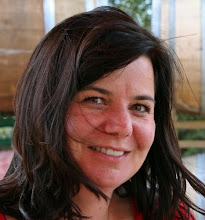April is Earthquake Preparedness Month
Could we have an earthquake in Sacramento? It could happen.
After an earthquake with an estimated magnitude of 6.6 that caused widespread damage nearby, the local newspaper’s headline read: “The Earth Dances a Lively Hornpipe.” The paper in question wasn’t the San Francisco Chronicle, Los Angeles Times or Eureka Times-Standard, all of which have had their fair share of earthquake headlines. It was the Sacramento Bee.
We have less to fear from earthquakes than many other Californians but we are not totally immune and since April is Earthquake Preparedness Month this is a good time to think about what you would do during any type of emergency.
The 100th anniversary of the Great San Francisco Earthquake is April 18. But there’s another anniversary of which Sacramento-area residents should be aware. The “lively hornpipe” the Earth danced that was felt so strongly in Sacramento occurred on April 19, 1892. The epicenter was estimated to be somewhere in the area of Vacaville, Dixon and Winters. There was also damage in the capital, Woodland, Chico, Davis, Napa, and Fairfield, among other places. A second destructive magnitude 6.4 quake occurred two days later and then a 5.6 aftershock on April 29.
Unlike Los Angeles and San Francisco, Sacramento is not known to be underlain by active faults. However, there are many known faults all around, and perhaps some unknown ones, too.
History has taught us that the old "What you don't know can't hurt you…." adage clearly does not apply when it comes to earthquakes. The most important lesson we can learn from our state's earthquake history is that although scientists cannot predict when an earthquake will happen, we can be prepared when an earthquake strikes. Here are several individual and family preparation steps that serve as a beginning:
Know the safe spots in each room-under sturdy tables, desks or against inside walls.
Know the danger spots-windows, mirrors, hanging objects, fireplaces, tall furniture.
Conduct practice drills. Physically place yourself and your children in safe locations.
Learn first aid and CPR (cardiopulmonary resuscitation) from your local Red Cross Chapter or other community organizations.
Decide where your family will reunite if separated.
Keep a list of emergency telephone numbers.
Choose an out-of-state friend or relative whom family members can call after the quake to report whereabouts and conditions.
If a major earthquake struck in your area today, you might be without direct assistance for up to 72 hours. Are you prepared to be self-sufficient? Take a look at the earthquake web page and earthquake resource links we have assembled on our jalone.com website. We hope you find them interesting and helpful.


0 Comments:
Post a Comment
<< Home